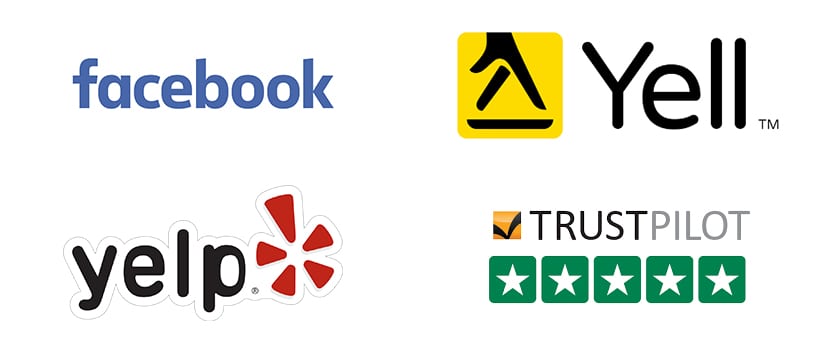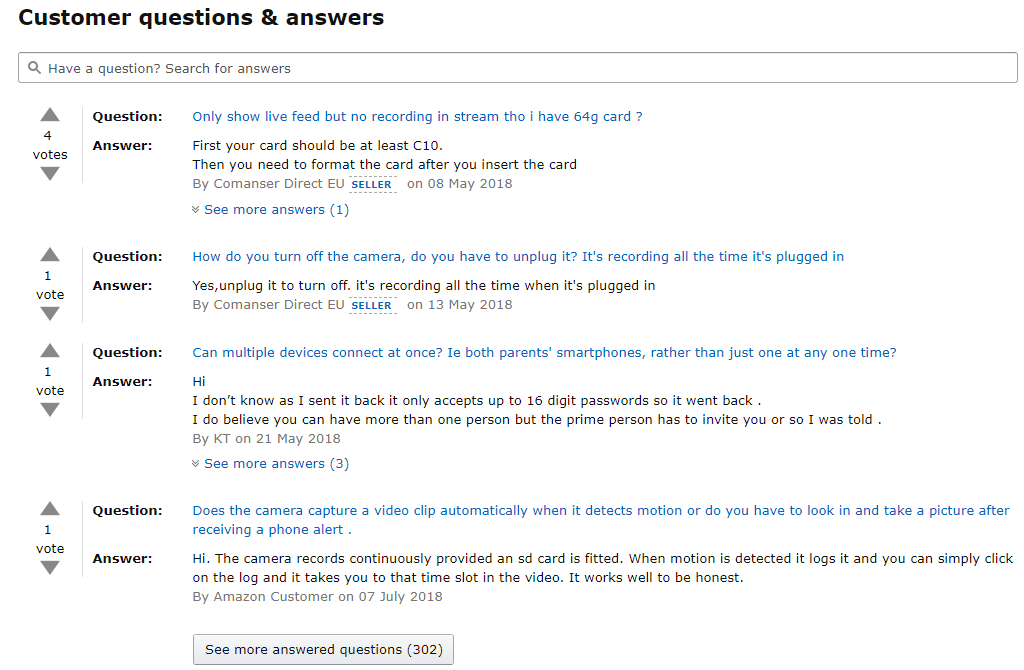Gone are the days when all you had to determine the quality of a product or service was what you heard from your Mum’s friend’s sister’s neighbour who used the same company once. That, and of course the sales spiel delivered by that company’s sales team.

The rise of independent review websites for products and services has paved the way for more credible reviews, thanks to them decreasing the fear of censorship. As a result, over 88% of users say that reviews contribute to their purchasing decision, which makes our customers a big part of our marketing strategy.

So, here are 7 key reasons why online reviews are so essential to your brand’s success.
1. Star Ratings
Something that we have all come to recognise as going hand-in-hand with any online review is the star rating system. So much so that even Google has now incorporated the star rating into search snippets, enabling users to potentially determine the quality of a product or service before even clicking on the search result itself.

Today, the star rating of a business or product is the number one factor used by consumers to make a judgement. So, how much of an impact will one star above or below your competitors make?
Research has found links between star ratings and consumer purchase potential:
- 2 star rating > 14% of consumers will purchase/enquire.
- 3 star rating > 57% of consumers will purchase/enquire.
- 4 star rating > 94% of consumers will purchase/enquire.
2. Time Decay
This one is fairly straight forward – the more recent the review is, the more reliable it will appear to a user. When it comes to the time-frame as to when a review becomes no longer relevant, research has shown that 44% of users have stated that the review must be published within the past month.
This should encourage you to constantly promote the fact that users are able to leave reviews about your products or services where possible; be it via social, email, in-store or on your website itself.
3. Are Negative Reviews Positive?
If you’re requesting feedback, it’s inevitable that not all of it is going to be positive. However, provided that your business is not overwhelmed with negative reviews, this could well be a blessing in disguise.
The reason being that with the steady inflation of online reviews over the past decade, it’s understandable that users have become increasingly sceptical when it comes to the reliability of them. To the extent that 95% of users will suspect your business of censorship if there are no negative reviews in the mix.

In fact, in extreme cases, reports have shown that 30% of users have even stated that they have disregarded all reviews as fake (regardless of sentiment) when there have been no negative reviews for a product or service.
68% of users claim that they trust reviews more when they see a mixture of positive and negative reviews. So, instead of seeing the occasional negative review as a harmful, you have the opportunity to turn it into a positive by responding and demonstrating to everyone that your business is prepared to make amends.
4. Conversions
So, we’re now aware of how reviews can influence users whilst making decisions to purchase or enquire about services, but just how much of an influence do they have? Well, 63% of users are more likely to convert on a website which features customer reviews.

Even the number of reviews can positively affect conversion rates, whereas reviews totalling 50 or greater for a single product have resulted in a 4.6% increase in conversion rates.
5. Trust
The impact reviews have on a user’s decision to convert is ever-growing – with 80% of users now showing as much trust for online reviews as they do for recommendations via word of mouth.
Of course, word of mouth is still the most popular influencer, however with this seeing a 2% drop year-on-year, it’s likely that online reviews will overtake them in the future.
Less surprising perhaps is the fact that today, reviews from experts and celebrity endorsements are now deemed less trustworthy than online reviews.
6. Traffic Drivers
Positive online reviews have been found to increase traffic on all levels. When users have the opportunity to read positive reviews about your company, research has shown that 48% of users will visit a company website, 23% will visit a physical location, and 9% will telephone a company – all off the back of online reviews!

7. Engagement
A mistake companies often make when it comes to managing online reviews is being reluctant to engage with them. If a user mentions an issue that they’ve had with a product or service in their review, then this can be an opportunity to engage and demonstrate (not only to the individual, but to anyone reading your reviews) that you’re willing to acknowledge and resolve the issues. Especially so when 95% of unhappy users will return to a company when their issue is resolved quickly.
Another opportunity for engagement – which often goes hand-in-hand with online reviews – is allowing users to publicly ask questions about your products or services. This feature alone has shown an 11% increase in what users are spending with companies.
Having a Q&A section enables you to accomplish a number of objectives at once:
- The ability to demonstrate your willingness to engage and respond in a timely manner.
- It allows you to create an FAQ for a particular product or service, which covers the actual questions users are asking.
- It enables you to better educate users before they enquire about a service.

In some cases, it’s not uncommon for both the questions and answers to be left entirely user generated.
All of these points clearly demonstrate how online reviews now play an ever-growing part in today’s user journey – when even negative reviews can have a positive impact on your business.
Now is the time to begin using online reviews to develop a sense of transparency for your business – and remember, reach for the stars!

